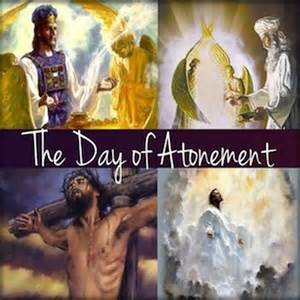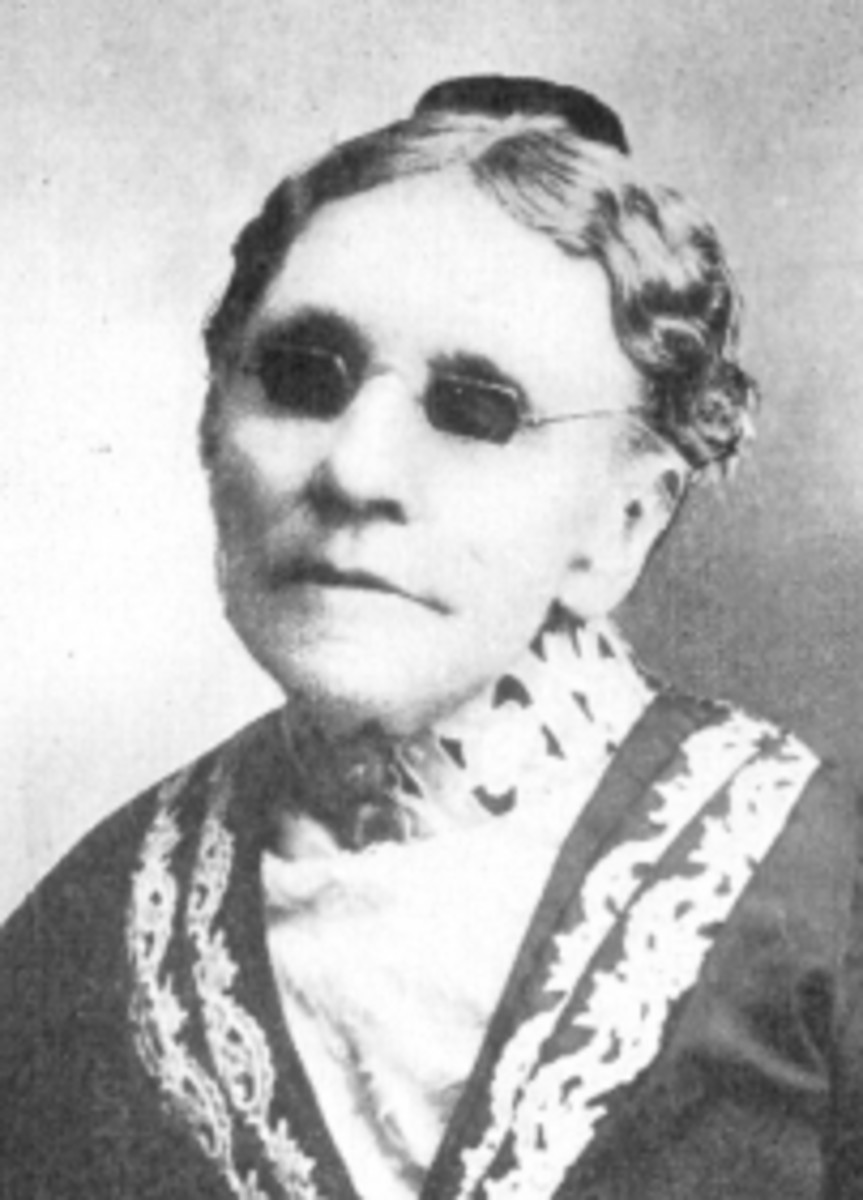Atonement and Repentance

Only on the Day of Atonement would the High Priest wear the white garments: tunic, belt, turban and pants. This signifies that the High Priest came before God within the Most Holy Place humbly and simply. He did not come in the outward splendor of gold and rich colors, but in pure white. Furthermore, white is the color of forgiveness, and forgiveness is what the High Priest is seeking for himself and all Israel as he came before the Ark.
Even before the cross, on the Mount of Transfiguration, Jesus was decked in garments white as light, as He prepared to make the final atonement as High Priest for the sins of the world at Calvary once and for all.
What does it mean to atone? - According to the dictionary it means to be in agreement, incurrence, in harmony, and to agree.
Agree with what? To be in agreement with what God the Creator has ordained as a pattern, standard and paradigm for living using principles that are established according to His will. The word itself is only used in connection with a relationship between God and man. The act of atonement offers an apology for behavior that is not in alignment with God's Word, Will and Spirit and all that pertains to Him. It is sorrow for wrong done. It is because of the atonement of Christ on the cross that we can now repent individually as well as collectively, it is ability to be sorrowful purchased through the atoning blood of the Lord Jesus Christ.
A Backdrop to Atonement - Taken from Judaism 101
The ten days starting with Rosh Hashanah and ending with Yom Kippur are commonly known as the Days of Awe (Yamim Noraim) or the Days of Repentance. This is a time for serious introspection, a time to consider the sins of the previous year and repent before Yom Kippur.
One of the ongoing themes of the Days of Awe is the concept that G-d has "books" that he writes our names in, writing down who will live and who will die, who will have a good life and who will have a bad life, for the next year. These books are written in on Rosh Hashanah, but our actions during the Days of Awe can alter G-d's decree. The actions that change the decree are "teshuvah, tefilah and tzedakah," repentance, prayer, good deeds (usually, charity). These "books" are sealed on Yom Kippur. This concept of writing in books is the source of the common greeting during this time is "May you be inscribed and sealed for a good year." It is likened how we greet each other the beginning of what we know as the new year. Everyone we speak to or see we generally wish them a Happy New Year.
Among the customs of this time, it is common to seek reconciliation with people you may have wronged during the course of the year. The Talmud maintains that Yom Kippur atones only for sins between man and G-d. To atone for sins against another person, you must first seek reconciliation with that person, righting the wrongs you committed against them if possible.
Have you really thought of the way the New Testament opens after 400 years of silence between the Book of Malachi and The Gospel of Matthew? The 400 years of silence refers to the time between the Old Testament and New Testaments, during which God did not speak to the Jewish people. The 400 years of silence began with the warning that closed the Old Testament: “Behold, I am going to send you Elijah the prophet before the coming of the great and terrible day of the LORD. He will restore the hearts of the fathers to their children and the hearts of the children to their fathers, so that I will not come and smite the land with a curse" (Malachi 4:5-6)and ended with the coming of John the Baptist, the Messiah’s forerunner. What was the message? "Repent"
Individual repentance or atonement was not brought to the fore front until the New Testament. It opens with the genealogy and miraculous birth of Christ through a virgin; and then culminates to the topic of repentance by way of John the Baptist and Jesus Christ. The point being it opens with repent and it closes in the Book of Revelation with the same word "repent".
The Baptist emerged into public favor with the very word "repent" making it known that the kingdom of God was at hand. In other words he was declaring it is a new day and that by repenting it would be opening a new door to a one on one relationship with the living God. Prior to this time, the High Priest was the only one who atoned for the sins of the people. This meant that individual repentance was not in motion during that time.
Do you see the how the door opened to have fellowship with God and what a privilege it is to have audience with a Holy God, as Father, and to have access into His presence, all because of the atoning blood of the Lord Jesus Christ. Repentance is what paves, and has paved the way to Him. Without repentance there is no remission of sin and it is the goodness and kindness of God that leads us to repentance. All you have to do is think of God's goodness towards you and a path to repentance opens right before you. Go back if you must and think about that day you acknowledged Jesus Christ as Savior and Lord, and you will recall the goodness that produced those hot tears you cried as you realized that you needed a Savior.
Seven Churches are mentioned in the Book of Revelation, and 5 out of 7 are told in various ways to repent and for more than one reason.
1) Ephesus was told, (Except thou repent) Pergamos was told, (Repent or else) Thyatira was told, (He had given space to repent, but they repented not) Sardis was told, (To remember how they had received, heard, and hold fast and repent) and Laodicea was told (As many as He loves, He rebukes and chastens, be zealous therefore and repent). This is an opportune admonition today to the Church at large and shows us how we must analyze, examine, and measure ourselves to the point of repenting. Can you see the mercy extended to the believer to have a one on one relationship with the Godhead? There is a purging and cleansing going on and it leads to repentance because of the atonement.
We should make sure we do not take the Holy Spirit for granted.... Repent to Him right now of grieving Him in any way form, and fashion. Tell Him you apologize for getting in His way in all of your dealings. The Holy Spirit is the authority in our lives on earth, He leads to holiness.
Can two walk together, except they be agreed? (Amos 3:3)
Can two in a relationship walk together except there is an agreement? Married people can answer this question better as it pertains to the union between the two, naturally speaking. Oftentimes, as we interrelate in various relationships, we don't always establish boundaries as does married people. Experientially they live the practicality of relationship on a daily basis and know what walking together in agreement entails.
However, we have entered into covenant relationship with God through the atonement of Jesus Christ for the remission of our sins. Yet we repent for falling short of the glory of God. Why is repentance still necessary? Because our feet get defiled. Think about how much soil shoes can pick up on a daily basis. You may say but my feel are covered inside of my shoes and my feet are clean until my next bath or shower. Actually I am not speaking literally, but figuratively, by feet I mean our walk.
Living in the awareness of walking together with God is knowing also that the flesh profits nothing. The flesh is like a disobedient child that is always getting into trouble. You are your flesh parental influence. A parent that can't see what their child does 24 hours a day can't vouch for their role in mischief. Something's we see about ourselves and then there are something's we do not see about ourselves. The things we do not see are called sins of omission, or what we failed to see that offends God,The Apostle Paul foretold of this struggle of when I would do good, evil is present and it was what he would not have agreed to do, that he did. If you offended a friend, would you be willing to apologize? Thoughts, intents, motives, words, deeds, and all that we are composed of needs the Holy Spirit to discern to us the motivation hidden behind and beneath the surface.
Is atonement just a Hebrew objective, or is it a universal objective? It should be the response by all creatures to the Creator for all the wrong we have done in a universe we did not create. For the Jewish people atonement came once a year and was observed and continues to be celebrated by them every year. It is called Yom Kippur (the day of atonement). For the Christian the day of atonement occurs today only when we hear His voice and harden not our hearts. When you hear His voice you will regret, be sorry, apologize, ask forgiveness, feel sorrow and be remorseful, you are atoning at this point. If when you think or feel bad things, and remorse does not accompany a wrong that is felt, it is because of a hard heart. It is because of that bitterness we are warned not to allow to spring up that is capable of defiling others as well as ourselves. It is a great idea when wrestling with uneasiness and toxic thoughts and feelings, to be empowered to discern what is happening and repent. This is the place of receiving the atonement Jesus Christ purchased in His blood. Because if your heart condemns you, God is greater than your heart, which means you have also offended God and repentance is needed to change the course and cleanse the atmosphere. This may be simplistic, but atoning is apologizing to God and admitting that you realize that you are wrong and requesting forgiveness and the power to change. In essence, it is confessing to God that we acknowledge our trespasses against His will. A trespasses is a by passing the boundaries that we are permitted.
I remember as a child through young adulthood seeing signs on private properties that read "Do not trespass" or "No trespassing" these signs were indicators that one could not step on that property or cross the barriers established and that it was a restricted zone.
Atonement in the Old Testament
The Hebrew verb ‘to atone’ (kaphar) means ‘cover’, so the noun ‘atonement’ (kippurim pl.) is a form of ‘covering’. The most usual form of the word in the Old Testament is kipper (piel form, causative form, of kaphar) which means to ’cause to be covered’, ‘make covering for’.
Lev. 5:18 - And the priest shall make covering (KJV atonement) for him on account of his ignorance.
Prov. 16:14 - A king’s wrath is a messenger of death,and a wise man will appease it.
This is all ‘atonement’ means. It’s just a way of translating the Hebrew idea of ‘covering’ sins as an idiom for ‘forgiving’ sins. Although the idea of ‘cover’ can also be used in ‘covering’, appeasing anger:
Atonement is the repairing of a damaged relationship, or the reconciliation of God and mankind through the death of Jesus.
The word in the New Testament usually translated “repent” is the Greek word “metanoeo”. It means “to change your mind; reconsider; or, to think differently.” Granted, if a person changes his mind (repents) toward certain sins in his life, he may become very sorrowful and may even stop committing those sins, but this would be a result of repenting, not repentance itself.
When God tells an unsaved man to repent, He means for that man to change his mind about how to reach God and accept His way of salvation. The person must change his mind from any idea of saving himself through religion or good works, and trust Christ’s death as payment for everything he has done wrong.
According to Strong’s Concordance, the English word repent appears 21 times in the Old Testament. These come from two different Hebrew words. The one used most often is Nacham, which means to regret. The other is shuwb which means to turn or return.
Romans 5:11 - And not only so, but we also joy in God through our Lord Jesus Christ, by whom we have now received the atonement. (KJV)
Thank You Creator God, Father, for Your standards, patterns, and paradigms which have brought and are giving structure to and for living. Prior to knowing Your Word and Commandments I had no value system that informed me of how to think, feel and act in accordance with Your will in a good way nor to behave in a moral manner. Thank you for sending Your Beloved Son, the Lord Jesus Christ to redeem me from moral decay, and I honor You and appreciate Your counsel and Word. I repent of every trespass that obstructs my path to You through the atoning blood of the Lord Jesus Christ.
Amen





